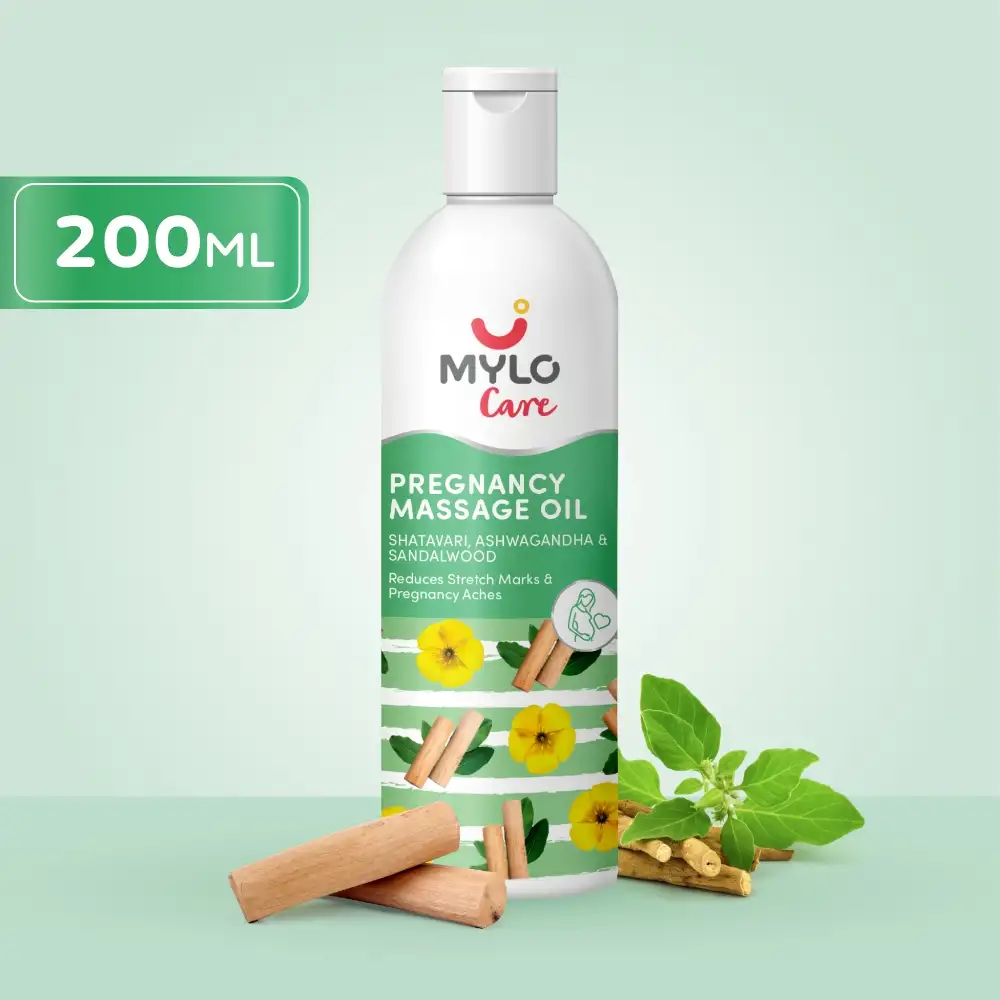
VIEW PRODUCTS
- Home

- Water Break

- Water Breaking During Pregnancy: All That You Need to Know
In this Article
Water Break
Water Breaking During Pregnancy: All That You Need to Know
Updated on 3 November 2023
It’s natural to get anxious about your water breaking when you are pregnant and nearing your labor. Being curious is justified, however, there is no need to lose your sleep over the experiences of other mothers which you may have heard. In this article, we will discuss the meaning of water breaking, its signs, causes and when you should see a doctor.
What is water breaking during pregnancy?
During pregnancy, your baby is well-cushioned and well-protected in the amniotic sac that is filled with amniotic fluid. The purpose of amniotic fluid is to keep the temperature warm inside the womb, it also helps in developing the baby’s digestive system and respiratory systems. When the amniotic fluid is released through your cervix and vagina after the rupturing of the sac then it is termed as water breaking.
Water breaking is one of the signs that delineate, you are in early labor or will be in labor soon. A pregnant woman’s water breaks when the baby is just on the way. Some women experience a slight pop or trickling of odorless warm liquid whereas others experience a gush of pale-yellow odorless fluid flowing out of their system. It all depends on where the amniotic sac has been torn from. More fluid will come out when you experience strong contractions and you will continue to leak fluid until your baby pops out.
What causes premature rupture of membranes?
Here are the causes of water breaking during pregnancy:
-
If your cervical length is short
-
Using drugs, consuming alcohol, or smoking during pregnancy
-
A history of premature breaking of water in previous pregnancies
-
Poor nutrition and an unbalanced diet during pregnancy
-
Being underweight
-
Vaginal bleeding during first 2 trimesters
-
Inflammation of fetal membranes
You must immediately seek medical help if it is difficult for you to differentiate between your pee/discharge and water breaking. If you had a happy, healthy full-term pregnancy then just stay calm and contact your ob-gyn. However, if you notice that your water has broken before the beginning of your contractions then don’t forget to carry your hospital bag when going to see a doctor.
How to differentiate between discharge and water breaking?
To differentiate between vaginal discharge, pee and amniotic fluid is slightly tricky but by smelling it you can know the difference. Amniotic fluid is a clear odorless fluid that may be slightly bloodstained in the beginning. Vaginal discharge is a thin white mucus that you have already seen during your menstrual cycle. It is thicker and heavier than amniotic fluid.
What happens next?
In some rare cases only the amniotic ruptures prematurely before labor otherwise you may already be in the hospital ready to deliver the child. Depending on the case it might take 12-24 hours to experience the first contractions after breaking the water.
If it takes more than 24 hours to begin your labor after breaking water then your doctor will have to induce labor to save you and your baby’s life. There are several risks involved and might attract bacteria for infections. With the help of an amniotomy, your doctor will open the amniotic sac and will let the fluid flow out of the cervix.
You may like: 10 Effective Exercises to Induce Labor Fast & Have a Safe Delivery (mylofamily.com)
When to seek medical help?
It is advisable to immediately seek medical help in the following circumstances:
-
If the fluid is brown or green then it means that your baby had a bowel movement inside the womb.
-
If you have reached the 37th week of your pregnancy and observe slow leakage of fluid between your legs.
-
In a rare case of PROM (if the position of the baby is breech or it’s a preterm case) you might observe something sticking out of your vagina then it can be the umbilical cord.
Getting panic in any of the above-mentioned situations will only worsen your condition. Stay calm and reach out to your doctor.
You may also like:
Closing Thoughts
Many mothers get worried and feel hesitant to step out during their last trimester because they are worried about what will happen if their water breaks at the restaurant, shopping mall, or movie theatre. Don’t worry too much because all you have to do is carry a maternity pad from the 36th week of your pregnancy. Avoid using a sanitary napkin or a tampon in this condition. You must keep your doctor’s number on the speed dial list whenever you are stepping out in your last month of pregnancy.
References
1. Wiley Online Library. (2016). Ruptured Membranes: When the Bag of Water Breaks. onlinelibrary.wiley.com



Written by
Mylo Editor
Official account of Mylo Editor
Read MoreGet baby's diet chart, and growth tips

Related Articles
Related Topics
Products you may like
RECENTLY PUBLISHED ARTICLES
our most recent articles

Diet & Nutrition
গর্ভাবস্থায় আলুবোখরা: উপকারিতা ও ঝুঁকি | Prunes During Pregnancy: Benefits & Risks in Bengali

Diet & Nutrition
গর্ভাবস্থায় হিং | ঝুঁকি, সুবিধা এবং অন্যান্য চিকিৎসা | Hing During Pregnancy | Risks, Benefits & Other Treatments in Bengali

Women Specific Issues
স্তনের উপর সাদা দাগ: লক্ষণ, কারণ এবং চিকিৎসা | White Spots on Nipple: Causes, Symptoms, and Treatments in Bengali

Diet & Nutrition
গর্ভাবস্থায় পোহা: উপকারিতা, ধরণ এবং রেসিপি | Poha During Pregnancy: Benefits, Types & Recipes in Bengali

Diet & Nutrition
গর্ভাবস্থায় মাছ: উপকারিতা এবং ঝুঁকি | Fish In Pregnancy: Benefits and Risks in Bengali

Diet & Nutrition
গর্ভাবস্থায় রেড ওয়াইন: পার্শ্ব প্রতিক্রিয়া এবং নির্দেশিকা | Red Wine During Pregnancy: Side Effects & Guidelines in Bengali
- ইনার থাই চ্যাফিং: কারণ, উপসর্গ এবং চিকিৎসা | Inner Thigh Chafing: Causes, Symptoms & Treatment in Bengali
- গর্ভাবস্থায় ব্রাউন রাইস: উপকারিতা ও সতর্কতা | Brown Rice During Pregnancy: Benefits & Precautions in Bengali
- Velamentous Cord Insertion - Precautions, Results & Safety
- Unlock the Secret to Flawless Skin: 7 Must-Have Qualities in a Face Serum
- Unlock the Secret to Radiant Skin: How Vitamin C Serum Can Transform Your Complexion
- Gender No Bar: 10 Reasons Why Everyone Needs a Body Lotion
- Unlock the Secret to Radiant Skin How to Choose the Perfect Body Lotion for Your Skin Type
- Top 10 Reasons to Apply a Body Lotion After Every Bath
- Communication in Toddlers: Milestones & Activities
- How to Improve Vocabulary for Toddlers?
- A Comprehensive Guide to Understanding Placenta Accreta
- Vulvovaginitis in Toddlers Causes, Symptoms and Treatment
- A Comprehensive Guide to Understanding Cerebral Palsy in Children
- Bitter Taste in Mouth During Pregnancy: Understanding the Causes and Remedies

At Mylo, we help young parents raise happy and healthy families with our innovative new-age solutions:
- Mylo Care: Effective and science-backed personal care and wellness solutions for a joyful you.
- Mylo Baby: Science-backed, gentle and effective personal care & hygiene range for your little one.
- Mylo Community: Trusted and empathetic community of 10mn+ parents and experts.
Product Categories
baby carrier | baby soap | baby wipes | stretch marks cream | baby cream | baby shampoo | baby massage oil | baby hair oil | stretch marks oil | baby body wash | baby powder | baby lotion | diaper rash cream | newborn diapers | teether | baby kajal | baby diapers | cloth diapers |







